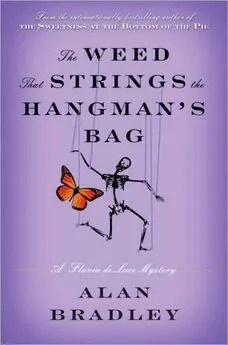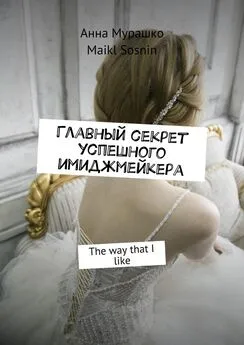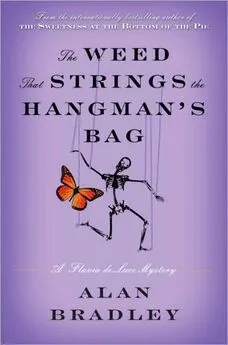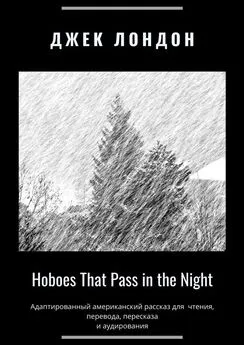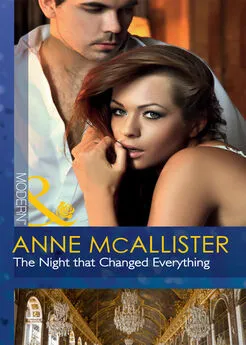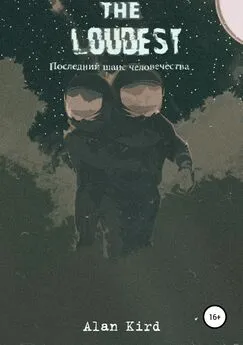Alan Bradley - The Weed That Strings the Hangmans Bag
- Название:The Weed That Strings the Hangmans Bag
- Автор:
- Жанр:
- Издательство:неизвестно
- Год:неизвестен
- ISBN:нет данных
- Рейтинг:
- Избранное:Добавить в избранное
-
Отзывы:
-
Ваша оценка:
Alan Bradley - The Weed That Strings the Hangmans Bag краткое содержание
The Weed That Strings the Hangmans Bag - читать онлайн бесплатно полную версию (весь текст целиком)
Интервал:
Закладка:
"--on Maundy Thursday. They're quite rare. If I remember correctly, Bert Archer is a coin collector, and I think you'll find the Maundy fourpence will more than pay for the van."
With all the righteous dignity I could muster, I grabbed Gladys by the handlebars and shoved off for home. When I looked back from the corner of the church, Nialla was already on her hands and knees, scrabbling in the churchyard grass, and I couldn't tell whether the tears she was wiping away were tears of anger or of happiness.
* TWENTY-SIX *
"ALL RIGHT, DOGGER," I SAID, "the jig is up."
I had found him in the butler's pantry, polishing Father's shoes.
Dogger's duties at Buckshaw varied in direct proportion to his present capabilities, his participation in our daily life rising and descending, rather like those colored balls in Galileo's thermometer that float at different levels in a glass tube, depending on the temperature. The fact that he was doing shoes was a good sign. It indicated clearly that he had advanced once again from gardener to butler.
He looked up from his work.
"Is it?" he asked.
"Cast your mind, if you please, back to Saturday evening at the parish hall. You're sitting beside me watching Jack and the Beanstalk when suddenly something goes wrong backstage. Rupert comes crashing down dead, and within minutes you are telling me that you fear we have seen murder. How did you know that? How did you know it wasn't an accident?"
This question had been gnawing away at my subconscious like a rat at a rope, but until that very moment, I had not been fully aware of it.
Dogger breathed on the upper of one of Father's regimental half-wellingtons before he answered, giving the glassy black surface a final loving rub with his shirtsleeve.
"The circumstances spoke against it," he said. "Mr. Porson was a perfectionist. He manufactured all his own equipment. A puppeteer works in the dark. There's no room for error. A frayed electrical wire was out of the question."
"It wasn't frayed," I said. "I spotted it when I was backstage with Inspector Hewitt. The insulation was scraped away."
"I should have been surprised if it wasn't," he said.
"Congratulations on a brilliant deduction," I said, "although it's one that didn't occur to me."
And it certainly hadn't, because the female mind doesn't work that way.
Seen from the air, the male mind must look rather like the canals of Europe, with ideas being towed along well-worn towpaths by heavy-footed dray horses. There is never any doubt that they will, despite wind and weather, reach their destinations by following a simple series of connected lines.
But the female mind, even in my limited experience, seems more of a vast and teeming swamp, but a swamp that knows in an instant whenever a stranger--even miles away--has so much as dipped a single toe into her waters. People who talk about this phenomenon, most of whom know nothing whatsoever about it, call it "woman's intuition."
Although I had arrived at much the same conclusion as Dogger, it had been by a very different route.
In the first place, although it was obvious that Rupert had been murdered for what he had done to a woman, I think I had known almost from the moment of his death that Nialla was not his killer.
"The instant he came crashing down onto the stage," I said, "Nialla leaped to her feet and moved towards him. Her first, and automatic, impulse was to go to his aid."
Dogger rubbed his chin and nodded.
"But she forced herself to stop," I went on, "as soon as she saw the smoke and the sparks. She quickly realized that touching any part of his body could mean instant death. For her--and her baby."
"Yes," Dogger said. "I noticed that, too."
"Therefore, Nialla is not the murderer."
"I believe you can safely remove her from your list," said Dogger.
It wasn't until I was halfway along the road to Culverhouse Farm that I realized how tired I was. I'd been up before the sun and had been going flat out ever since. But time was of the essence: If I didn't get there before Inspector Hewitt, I wouldn't know the gruesome details until I read about them in the News of the World .
This time, rather than crossing the river behind the church, I had decided to go round by the Hinley road and approach the farm from the west. By doing so, I would have the advantage of height to survey the terrain, as well as keeping to the cover of Gibbet Wood. Now that the noose was tightening, so to speak, it would never do to be ambushed by a cold-blooded killer.
By the time I was halfway up the chalky road of Gibbet Hill, I felt as if my blood were mud, and my shoes were made of lead. Under any other circumstances, I might have crawled into a quiet thicket for a nap, but it was not to be. Time was running out and, as Father was so fond of saying, "Tired is a mucker's excuse."
As I listened to the wind sighing and whispering in the treetops of Gibbet Wood, I found myself half hoping that Mad Meg would leap out and divert me from my mission. But this, too, was not to be: Aside from a yellowhammer tapping away like a busy shoemaker at the far side of the wood, there were no signs of life.
When I reached the top of the hill, Jubilee Field sloped away from me towards the river, a blanket of electric blue. At the outbreak of war, Gordon had been made to grow flax, or so Mrs. Mullet had told me, by order of HM Government, who required the stuff to manufacture parachutes. But the Battle of Britain had been years ago, and parachutes were no longer required in anywhere near the same quantity.
Still, working under the cloak of wartime necessity, it seemed that Gordon had managed to keep his secret crop of cannabis tucked handily away among the trees of Gibbet Wood, its very existence known to no more than a handful of people.
Which one of them, I wondered--if it was one of them--besides hating him passionately enough to kill, possessed sufficient electrical knowledge to have put the jolt to Rupert Porson?
A flash of light caught my eye: a reflection from the side of the road. I saw at once that it was one of Mad Meg's roadside junk ornaments, dangling by a string from a bramble bush. It was no more than a jagged bit of chrome trim, jarred loose from the radiator of some passing motorcar by the roughness of the road. Hanging beneath it, and twisting idly in the sun (it was this that had caught my eye) was a small ridged circular disk of silver which, judging by its red stains, had once been the lid on a half-pint tin of paint.
It reminded me, oddly enough, of something I had experienced the previous year when Father had taken Ophelia, Daphne, and me up to London for midnight mass at the Brompton Oratory. At the elevation of the Host, as the priest held the round white wafer (which some of us believed to be the Body of Christ) above his head for an inordinately long time, it had for just an instant caught the light from the candles and the colored reflections of the chancel, glowing with an unearthly iridescent sheen that was neither solid nor vaporous. At the time, it had seemed to me a signal that something momentous was about to happen.
Now, at the verge of Gibbet Wood, the oiled teeth of some mental cogwheel fell into place with a series of almost audible clicks.
Church. Click! Vicar. Click! Circle suspended. Click! Bicycle clip. Click! Paint lid. Click! Meg. Click!
And I saw as if in a blinding vision: The vicar had been here at Culverhouse Farm last Thursday. It was here that he had caught his trouser leg in the bicycle chain and lost his clip. He had been wearing it after all! And it was here in the chalky dust that he had taken a tumble. The white smudges on his black clerical garb had come from this very road.
Mad Meg, the perennial magpie, had found the clip--as she did with all shiny metallic objects dropped in the vicinity of Gibbet Wood--and Meg had picked it up and brought it with her to the vicarage.
Her turned me out. Took old Meg's bracelet and turned her out. Dirty, dirty!
Meg's words echoed in my memory. She had been talking about the vicar's wife.
It was Cynthia Richardson who had taken the bicycle clip--Meg's "bracelet"--away from her, and shooed her out of the vicarage.
From the vicarage, it was only a hop, step, and jump to the parish hall, where the thing turned up backstage, as the murder weapon, in Rupert's puppet theater.
That's the way it must have happened. I was sure of it: as sure as my name is Flavia de Luce. And I could hardly wait to tell Inspector Hewitt!
Below me, in the distance, on the far shore of a sea of blue flax, a gray Ferguson tractor was creeping slowly alongside a stone wall, towing a flatbed trailer in its wake. A flash of blond hair in the sunlight told me that the man on foot, unloading stones for wall-mending, must be Dieter, and there was no doubt that the person in overalls at the tractor's wheel was Sally. Even if they had been paying attention--which they weren't--they were too far away to spot me slinking down towards the farmhouse.
As I moved cautiously across the courtyard, the place seemed sunken in shadow: old stone piled upon old stone, with dead-eyed windows (as Sally had said) staring out blindly upon nothing. Which of the blank panes, I wondered, had been Robin's bedroom? Which of the empty windows had framed his lonely little face before that unthinkable Monday in September of 1945, when his short life had ended so abruptly at the end of a rope?
I gave a token knock at the door, and waited a respectful thirty seconds. At the end of that time I turned the knob and stepped inside.
"Mrs. Ingleby?" I called. "Mr. Ingleby? It's me, Flavia. I've come to see if you have any extra-large eggs."
I didn't think there would be a reply, and I was right. Gordon Ingleby was far too hardworking to be mooning about his house while there was still a trace of daylight outside, and Grace--well, Grace was either in her dovecote tower or wandering the hills. The inquisitive Mrs. Mullet had once asked me if I ever came upon her in my rambles about the shire.
"She's a queer one, that Grace Ingleby," she'd said. "My friend Edith--that's Edith Crowly, dear--her as was Edith Fisher before she married Jack--was walkin' over to her choir-practor's appointment in Nether Stowell--she'd missed the bus, you see--and she spotted Grace Ingleby comin' out of a copse at the bottom of Biddy's Lane which goes over the hill to nowhere.
"'Grace!' she called out to her. 'Yoo-hoo, Grace Ingleby!' but Grace slithered through a stile--those are her very words: 'slithered through a stile,' if you can picture it, and by the time she got there herself, Grace was gone. 'Gone like a dog's breath in December.' That's what she said."
When it came to village gossip, Mrs. M was infallible, like Pope Pius IX.
I moved slowly along the corridor, fairly confident that I was alone in the house. At the end of the hall, beside a round window, a grandfather clock was "tocking" away to itself, the only sound in the otherwise silent farmhouse.
I looked quickly into each room: parlor, cloakroom, kitchen, pantry ...
Beside the clock, two steps led up to a small square landing, and by peering round the corner, I could see that a narrow stairway continued upwards to the first floor.
Tucked in beneath the stairs was a cupboard, its oddly angled door of dovetailed boards fitted out with a splendid doorknob of green and white china that could only have been Wedgwood. I would have a jolly good dig through it later.
Each step gave out its own distinctive wooden groan as I ascended: like a series of old coffin lids being pried open, I thought with a pleasant shudder.
Читать дальшеИнтервал:
Закладка:
